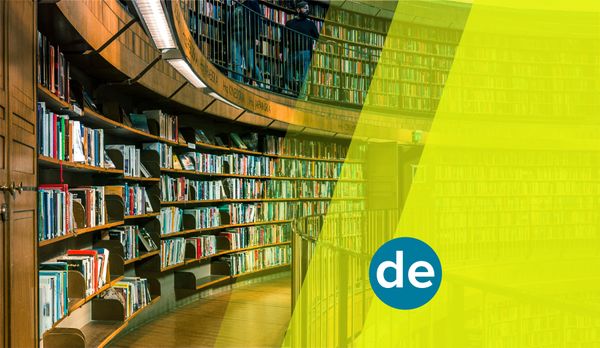Current Happenings in the Internet Governance Context in October 2023
IGF Closes with 100 Messages from Kyoto
On 12 October 2023, the five-day Internet Governance Forum (IGF) in Kyoto came to an end. It was the largest IGF in the IGF's 18-year history. More than 9000 participants had registered. UN Secretary-General Guterres and Japanese Prime Minister Kishida opened the IGF. The focal topics were artificial intelligence, the Global Digital Compact, overcoming the digital divide, human rights, platform regulation and cyber security. Governments were represented at a high level, but not at ministerial level. Neither were the top representatives of global Internet companies present for the business community. The "Parliamentarian Track" has established itself. The number of "Bilaterals" has increased, giving the IGF additional practical political significance. The more than 100 "IGF Messages from Kyoto" and the reports of the IGF Policy Networks on artificial intelligence, cyber security and Internet fragmentation are considered as concrete output. (Further information) Carol Roach, Minister of the Bahamas, was elected as the new Chair of the Multistakeholder Advisory Group (MAG). The IGF 2024 will take place in Riyadh/Saudi Arabia. Civil society organisations such as Access Now have threatened to boycott the event due to the human rights situation in the country. Oslo and Moscow are candidates for 2025. The German government was represented by three ministries (BMDV, AA, BMWZ) and hosted a reception.
GDC Debate Supports Long-Established Multistakeholder Institutions
A course correction became apparent in October 2023 during the debate on the Global Digital Compact. The proposals made in UN Policy Brief No. 5 of May 2023 – the creation of a new multilateral Digital Cooperation Forum (DCF) based in New York, a redesign of the multistakeholder model in the form of "trilateralism", in which the technical community was assigned to civil society, and the launch of an independent follow-up to the implementation of the GDC – received less and less support. UN Secretary-General Guterres did not repeat any of the three proposals in his IGF speech in Kyoto and argued "that the Internet's long-established multistakeholder institutions need more support, not less." On the eve of the IGF, Vint Cerf, Co-Chair of the IGF Leadership Panel, and Amandeep Gil Singh, UN Tech Envoy, took a fundamental stance in a joint article in Nikkei Asia: "A unique approach to the governance of the Internet that involves all stakeholder groups has evolved over the years and has stood the test of time so far. This "multistakeholder" model even kept the Internet running smoothly through the COVID-19 crisis when usage surged as 1.7 billion people came online for the first time. Collaborative multistakeholder governance of the online world was originally enshrined in U.N. practice in 2005 with the establishment of the IGF. In this body, governments, the private sector, civil society and the Internet's technology community meet on an equal footing to discuss governance policies. The IGF is complemented by a number of independent technical platforms, including ICANN and the IETF, which determine technical aspects of Internet protocols, addresses and registries. For more than three decades, through many geopolitical twists and turns, this approach has served the world well. As the Internet grows, with more users and services, we do need to be able to adapt to fresh challenges while at the same time preserving the multistakeholder approach to Internet governance....It is vital that as the digital governance landscape evolves to address emerging challenges and opportunities, including the rise of powerful AI models, Internet governance objectives and actions continue to be led by the IGF, ICANN and IETF. The moat around their apolitical structure and functioning is a safeguard that the world cannot afford to lose." After the IGF, Vint Cerf and MAG Chair Paul Mitchell wrote a letter to the UN Secretary-General and the GDC Co-Coordinators containing substantive and procedural proposals for a GDC and again offered to use the IGF as a platform for a follow-up to the GDC.
Requests for AI Regulations Intensify
In October 2023, the debate on the regulation of artificial intelligence intensified further. In fact, something like a regulatory AI race has broken out. With its principles adopted in 2019, which are supported by the G20, the OECD sees itself as the "mother" of the new wave of AI regulation. The EU Commission has developed the most precise regulatory project to date with the EU AI Act. It was the subject of further controversial negotiations in the "trialogue" in October 2023, as there were differences of opinion, particularly with regard to the risk classification procedure. On 30 October 2023, the USA issued its own presidential "AI Executive Order" and President Biden called on the US Congress to initiate legislation. To prevent a patchwork government, the G7 ministers signed a "G7 Leaders' Statement on the Hiroshima AI Process" on 29 October 2023 with a concrete package of measures. On 26 October 2023, UN Secretary-General Guterres appointed the 40 members of a new "UN High Level AI Advisory Board". And at the Belt and Road Initiative summit in Beijing on 18 October 2023, Chinese President Xi Jinping launched a Global Initiative for AI Governance. British Prime Minister Sunak has invited people to an AI World Summit in London on 1 and 2 November 2023. And in the shadow of these initiatives, the Council of Europe made considerable progress with its AI Framework Convention at the 7th meeting of the AI Committee (CAI) on 26 October 2023. The convention should be ready for signature by March 2024.
ITU Working Group no Longer Requesting Governance Change for Critical Internet Resources
No significant decisions were taken at the meetings of the ITU Council Working Groups from 8 to 16 October 2023 in Geneva. Russia's proposal in the CWG-Internet to take up again the topic of the oversight of the management of critical Internet resources, i.e. ICANN, was not supported. Even China spoke out against it. The CWG-WSIS & SDG has adopted a roadmap for WSIS+20. The next ITU General Assembly is scheduled for October 2026 in Doha, Qatar.
ICANN 78: Right Balance for Good Results Will Be a Challenge for Future Chair
At the ICANN Annual General Meeting in Hamburg from 23 to 26 October 2023, the focus was on the long-standing domineering topics of new gTLDs, data protection, universal acceptance and DNS abuse in addition to the celebrations for ICANN's 25th birthday. The relationship between DNS and emerging alternative identifier systems such as blockchain/Ethernet (.eth) is coming up as a critical new topic. The GAC was informed in detail about this in Hamburg and refers to possible consequences for Internet fragmentation in its communiqué. (Further information) The role of ICANN in the GDC and WSIS+20 was also discussed. ICANN cannot stay out of these negotiations but should avoid getting caught in the political "line of fire" again. Finding the right balance will be one of the tasks of the new CEO. A call for applications was published on 21 October 2023. The deadline for applications is 27 November 2023.

















